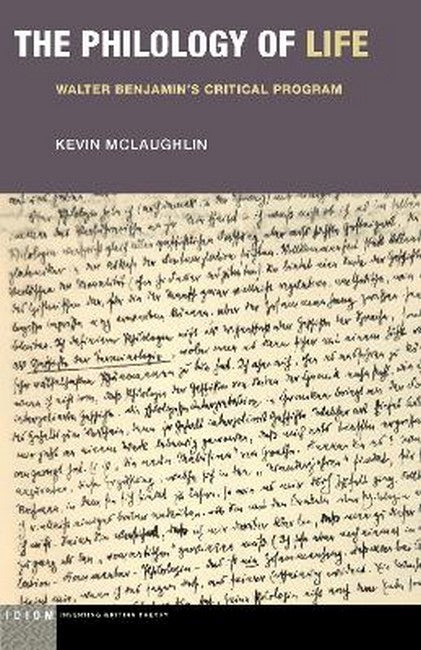Kevin McLaughlin was Dean of Faculty at Brown University from 2011-22. He is George Hazard Crooker University Professor of English, Comparative Literature, and German Studies at Brown. He is the author of Poetic Force: Poetry after Kant (Stanford University Press, 2014), Paperwork: Literature and Mass Mediacy in the Age of Paper (University of Pennsylvania Press, 2005), and Writing in Parts: Imitation and Exchange in Nineteenth-Century Literature (Stanford University Press, 1995), and the co- translator with Howard Eiland of Walter Benjamin's Arcades Project (Harvard University Press, 1999).
Request Academic Copy
Please copy the ISBN for submitting review copy form
Description
Note on Abbreviations ix Introduction: The Philology of Life 1 1. "Two Poems by Friedrich Hoelderlin" 15 2. The Concept of Criticism in German Romanticism 42 3. "Goethe's Elective Affinities" 68 Coda: The Afterlife of Philology 109 Acknowledgments 127 Appendix: Sources for Benjamin's "Goethe's Elective Affinities" (1924-25) 129 Notes 131 Bibliography 179 Index 189
This book takes up a worthy place among a strong flow of books that bring an impressive weight to bear on Walter Benjamin's work from every plausible quarter.-- "Monatshefte" McLaughlin's book is a model of literary studies in which the idea of life becomes a primary focal point. This life is neither the typical material of literary biography nor the 'mere life' that comes under discussion in assessments and critiques of biopolitics. By presenting the question of life as fundamentally a matter of reading, McLaughlin's biophilology makes an invaluable contribution to our understanding of Benjamin's early work as well as the theory of literature in general.---Peter Fenves, Northwestern University This is a rare book that addresses Benjamin as reader of literature, as a failed academic Literaturwissenschaftler but a highly successful, even prophetic reader. The manuscript is marked by a lapidary quality that speaks to the expertise and depth of the author's approach.---Leif Weatherby, New York University

